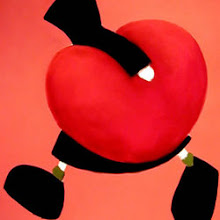I love to laugh, no doubt about it. And I love to make people laugh. I find that if I have to speak in front of a group, and I get that nauseous feeling in my stomach, it goes away as soon as I can get the first laugh from the audience.
So, yes, a bunch of funny people are featured, and they will make you laugh. But the best part about this documentary is how insightful it is into what it's like to be in a male-dominated profession. Actually, that's kind of an understatement. Not only are women the overwhelming minority in stand-up comedy, but they are also criminally underestimated. The comedians respond to Adam Carolla's recent claims in the New York Post that women aren't as funny as men. As you can imagine, they take Carolla to task for his comments. You remember Carolla, right? He co-hosted "The Man Show," which was so cutting-edge in its humor, it included video of women on trampolines each week. High-brow hilariousness, huh?
And that's the other excellent point made in film. It's something I suppose I never thought about, but it's so true, it's almost an epiphany. Women tend to be more discerning when it comes to comedy. For guys, all you need is a fart noise and a joke about poop, and they're rolling on the floor laughing. It's a total generalization, yes, I understand that. But each day since I saw the film, I've found another example to prove that belief is true.
That shit makes me laugh, too, sometimes, but I think I know why there are far too many low-brow, raunchy, male-dominated movies in the theater - because men are running the movie houses and keep green-lighting those pictures. Every once in a while you get a guy who understands that you need more to attract women to those types of films. Judd Apatow, you genius, I'm talking to you. His films have their share of potty humor, but there's a lot more going on in his movies, and I know, personally, that's why I tune in.



